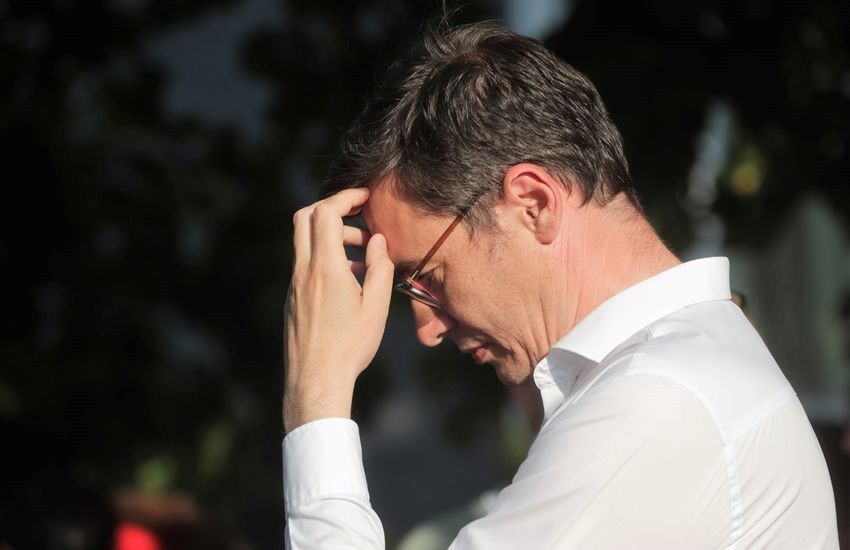It is well known that the mayor likes to complain, and he understands - at least this - so in today's fresh, crisp post he also writes about how he thinks the government is robbing the capital. However, the facts show otherwise.
"The government does not support the capital, but the capital supports the government. It is not enough that 98 percent of the taxes paid in the capital city are deducted, even the capital city municipality has to pay the government from its own revenues, thus the previously unimaginable scenario was realized that the capital city has now become a net contributor to the budget.
Budapest was systematically looted in two years. They removed the vehicle tax, quadrupled the solidarity contribution to HUF 37 billion, HUF 80 billion in business tax was withdrawn from the Capital City and the districts, they are trying to destroy the drinking water supply with a meaningless water utility tax, garbage collection with a wasteful state trash holding, and they are blocking the purchase of vehicles by blocking preferential loans.
Now they want to make public transport impossible by withholding HUF 12 billion due to Budapest in the budget law. The government is punishing the people of Budapest, because the massive majority of the citizens of the capital do not buy into their hate campaigns and they clearly see how the NER stole the country apart in 11 years, how they ruined the education and health system.
In the case of the Healthy Budapest support contracts, they also fought with the Capital until the last moment, just so that the specialist clinics and the partner health care providers could not plan with the investments. Fidesz has always excelled in arrogance, but in governance it has failed."
Let's face the facts!
The government's goal is for Budapest to be a livable, developing, functioning metropolis, a worthy home for the people who live here and a worthy capital of Hungary. The government therefore gave significant support for the development and operation of Budapest to the Capital Municipality, which is considered one of the richest local authorities.
given to the operation of Budapest was increased by a third this year compared to last year, after 88.3 billion forints in 2020, a state contribution of 111.4 billion forints in 2021 helped the capital and district municipalities fulfill their tasks.
of the well-off municipalities to receive a discount from the payment of the solidarity contribution , in the amount of nearly HUF 50 billion between 2017-2020. The government also makes a special contribution to the development of Budapest. Within the framework of the Healthy Budapest Program, the government provides HUF 50 billion between 2020 and 2024 to the Metropolitan Municipality and the 23 districts of Budapest in order to improve outpatient care and reduce waiting lists. The reduction of the financial burdens of the Metropolitan Municipality is helped by the fact that the government has taken on the extension of the intermodal tram in Buda, as well as the development of the intermodal junction in Kelenföld and partly the lower wharf in Pest.
The government has provided support for several ongoing projects where the capital city is the investor. It fully finances the HUF 220 billion renovation of the M3 metro line. The Chain Bridge can be renovated with HUF 6 billion and Blaha Lujza Square with HUF 1 billion government support.
The value of the investments in Budapest that have been implemented since 2010 and are still ongoing can be estimated at more than HUF 2,300 billion. In Hungary, the administration of local public affairs is the responsibility of local governments, which operate independently of the government, and the people of Budapest entrusted the current leadership of the Capital City Government with their representation.
The government sees Budapest as the nation's capital, which is why the city is one of the biggest beneficiaries of state subsidies, but the government cannot make decisions or run the economy instead of leading the Capital.
The financial situation of the Capital City Municipality is stable, at the end of October 2021 it had HUF 87.3 billion in cash and HUF 46.7 billion in government securities. Largely thanks to the government's crisis management
the revenues from the local business tax are expected to significantly exceed the planned amount this year, instead of 139, the Capital can expect an amount of around HUF 150 billion.
Budapest's good financial situation was also confirmed by the fact that Moody's, the international credit rating agency, improved Budapest's debt classification in the fall of 2020, despite the negative economic effects of the coronavirus , currently evaluating the capital's financial situation with a stable outlook, refuting the mayor's claims.
The municipality received money for the purchase of a luxury hotel for HUF 5 billion, as well as for bonuses and consulting fees, and for maintaining a representation in Brussels in the order of billions.
The delay on the part of the capital's management in launching some major investments in the capital also caused an additional expenditure of tens of billions. These are not expenses typical of a municipality that is close to bankruptcy, so we ask the leadership of the Capital City to deal meaningfully with the management of the municipality entrusted to them in addition to opposition political actions for the sake of Budapest.
Source: Facebook, MTI












